
 Flash News
Flash News
With the eagle symbol, Torino presents the purchase of the Albanian national team defender
Eraldo Muçi's disappearance, his mother's testimony comes to light: My son was friends with Sanço
28 arrested in Italy and Spain for drug trafficking, including an Albanian
Residents clash with police in Theth: We are on our land
The case of the murder of the Italian teacher is reopened, a 47-year-old Albanian suspect is suspected
EC report: Albania faces widespread corruption in police, justice and administration
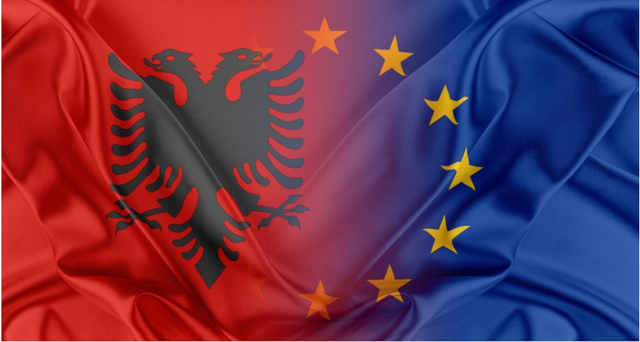
Albania remains a country where the perception of corruption in the public sector is still high and deeply rooted in the daily lives of citizens and businesses.
According to the latest European Commission report, 86% of Albanians consider corruption widespread, while 45% feel personally affected by it, figures that significantly exceed the European Union average.
While SPAK has recorded some notable successes in prosecuting high-level corruption, including convictions of former senior officials, the report highlights that institutional capacities, inter-institutional coordination, and effective implementation of preventive measures remain weak.
According to the report, sectors such as health, education, police and the Cadastre Agency are identified as high-risk areas, where the lack of internal controls and insufficient digitalization of data make the fight against corruption even more difficult.
Excerpt from the EC report:
The perception among experts, citizens and business leaders is that the level of corruption in the public sector remains high. In Transparency International’s 2024 Corruption Perceptions Index, Albania scores 42/100 and ranks 80th globally. However, this perception marks the best result for Albania in the last five years, confirming the positive impact of the implementation of the justice reform. The 2025 Special Eurobarometer on Corruption shows that 86% of respondents consider corruption widespread in their country (EU average 69%) and 45% of respondents feel personally affected by corruption in their daily lives (EU average 30%). As for businesses, 85% of companies consider that corruption is widespread (EU average 65%) and 63% consider that corruption is a problem when doing business (EU average 35%). Furthermore, 56% of respondents think that there are enough successful prosecutions to deter people from corrupt practices (EU average 30%), while 51% of companies believe that people and businesses caught bribing a high-ranking official are punished appropriately (EU average 33%).
The Anti-Corruption Strategy for 2024-2030 has been adopted. The new anti-corruption strategy, adopted in December 2024 by the Government, focuses on areas with high risk of corruption (such as property, public procurement, health, education, customs and taxation), with an emphasis on integrity education for young people and addressing relevant previous recommendations. The anti-corruption strategy included measures to improve institutional monitoring and coordination mechanisms. However, further strengthening of institutional capacities, planning, coordination and monitoring mechanisms remains necessary.
Although a comprehensive legal framework to combat corruption exists, certain gaps remain. The Criminal Procedure Code lacks provisions that would give jurisdiction to the Special Courts against Corruption and Organized Crime in matters related to the execution of their decisions. In May 2025, the Government submitted to Parliament for approval the draft law on the Asset Recovery Office. Albania is not yet a signatory to the OECD Anti-Bribery Convention.
SPAK further consolidated its positive results in the fight against high-level corruption, while some shortcomings remain in terms of staffing and infrastructure. The Special Anti-Corruption Structure (SPAK)61 and the courts against corruption and organised crime (SPAK courts) have delivered positive results in investigating, prosecuting and adjudicating corruption cases, including those involving high-level politicians and officials, as well as in protecting the EU’s financial interests62. SPAK demonstrates sound strategic vision and independence in contributing to the fight against high-level corruption, despite increased pressure from political, organised crime groups and the media. SPAK enjoys a high level of public trust. SPAK’s access to state databases was expanded63. SPAK’s actions continued towards establishing its case management system64, consolidating its analytical capacity in the fight against organised crime networks65, and developing an action plan to reduce its workload. SPAK’s continuously increasing workload and insufficient staff and infrastructure still need to be addressed66. The number of referrals to SPAK from other authorities has further decreased and remains low67. Other corruption suppression structures continued to face challenges in effectively detecting and investigating corruption68.
SPAK ka bërë përparim të prekshëm drejt një rekordi të fortë në luftën kundër korrupsionit, veçanërisht në nivel të lartë, dhe përdorimi i hetimeve financiare dhe konfiskimeve të aseteve është përmirësuar. Nga 1 janari deri më 31 dhjetor 2024, Gjykata e Posaçme e Apelit për Korrupsionin dhe Krimin e Organizuar (gjykata e apelit e SPAK) dha 24 vendime përfundimtare, me 106 persona të dënuar në vendime përfundimtare në raste korrupsioni, duke përfshirë 13 dënime në raste të nivelit të lartë (duke përfshirë ish-ministrin, ish-kryetarin e Gjykatës Kushtetuese, ish-kryetarët e bashkive dhe zyrtarë të tjerë). 69 Kapaciteti njerëzor, teknik dhe financiar i SPAK për hetime financiare dhe konfiskime të aseteve është përmirësuar, dhe niveli i sekuestrimeve dhe konfiskimeve totale të aseteve ka mbetur i qëndrueshëm. Sekuestrimi i aseteve për krime të lidhura me korrupsionin ka rënë, ndërsa konfiskimi i aseteve për krime të lidhura me korrupsionin është përmirësuar. 72 Shqipëria raportoi se ka krijuar një zyrë për rikuperimin e aseteve brenda Policisë së Shtetit Shqiptar, por funksionimi i saj i plotë mbetet për t'u demonstruar. Përdorimi sistematik i masave të posaçme hetimore është përmirësuar, megjithëse hendeku midis sekuestrimeve dhe konfiskimeve vazhdon
Edhe pse janë ndërmarrë disa hapa organizativë, korniza institucionale për parandalimin e korrupsionit mbetet kryesisht joefektive dhe koordinimi me zbatimin e ligjit duhet të forcohet më tej. Drejtoria e Përgjithshme Kundër Korrupsionit (DPKK) është transferuar nga Ministria e Drejtësisë te Ministri i Shtetit për Administratën Publike dhe Korrupsionin në qershor 202474. DPKK iu nënshtrua një riorganizimi të kapaciteteve që merren me hetimin administrativ dhe vlerësimin e riskut dhe për t'i kushtuar më shumë rëndësi parandalimit, megjithëse mbetet gjithashtu përgjegjëse për hetimet administrative të centralizuara. Vazhdojnë mangësitë në lidhje me kapacitetet e DPKK-së për të mbikëqyrur në mënyrë efektive zbatimin dhe vlerësimin e masave parandaluese, së bashku me vlerësimet e hollësishme të riskut. Janë bërë disa përpjekje, veçanërisht në fushat me rrezik të lartë për korrupsion, por zbatimi efektiv është ende i dobët ende për t'u demonstruar75. Koordinimi midis institucioneve përgjegjëse për parandalimin e korrupsionit dhe strukturave përkatëse të zbatimit të ligjit mbetet i dobët dhe numri i referimeve ka rënë më tej. Institucioni i Auditimit të Shtetit (KLSH) ka një rekord më të fortë në referimet gjyqësore dhe bashkëpunimin me organet e ndjekjes penale. Në vitin 2024, KLSH referoi 13 raste me elementë penalë në ndjekje penale. Përveç kësaj, 35 referime për çështje që kërkojnë hetime të mëtejshme u ndanë me organet e prokurorisë me kërkesë76.
Pavarësisht disa përpjekjeve kundër korrupsionit, përfshirë rishikimin e Ligjit për Policinë, policia shtetërore është ende shumë e ndjeshme ndaj korrupsionit Ligji për Policinë është rishikuar, duke përfshirë një numër ndryshimesh strukturore". Agjencia e Mbikëqyrjes së Policisë rriti aktivitetet e saj. Në vitin 2024, Agjencia mori 1 704 ankesa nga qytetarët në lidhje me sjelljen e stafit të Policisë së Shtetit drejtpërdrejt dhe 3 334 përmes një linje të dedikuar policore. Ajo nisi 63 inspektime, nga 51 në vitin 2023, dhe rekomandoi hetime disiplinore për 283 punonjës, 60% më shumë se në vitin 2023. Komisioni i Hetimit Disiplinor vendosi masa disiplinore për 43 oficerë policie. Agjencia gjithashtu referoi 463 punonjës të zbatimit të ligjit për ndjekje penale (35% më shumë se në vitin 2023), kryesisht për "shpërdorim detyre" dhe "korrupsion pasiv".78 Me qëllim sigurimin e integritetit të personelit të policisë, vitin e kaluar 62 individë iu nënshtruan vlerësimit periodik dhe kalimtar, me 46 vendime konfirmimi dhe shkarkim nga detyra në një rast. Në mars të vitit 2025, një operacion i brendshëm i udhëhequr nga SPAK dhe Policia e Shtetit, në bashkëpunim me Agjencinë e Mbikëqyrjes së Policisë, rezultoi në arrestimin e tre oficerëve të policisë, për shkak të përfshirjes së tyre të dyshuar me grupe kriminale 80
Mangësi mbeten në aspektin e efektivitetit të verifikimeve të deklaratave të pasurive dhe interesave nga ILDKPKI, duke përfshirë profilizimin me risk të lartë. Deklaratat e pasurive dhe interesave vazhduan të verifikohen nga Inspektorati i Lartë për Deklarimin dhe Auditimin e Pasurive dhe Konfliktit të Interesit (ILDKPKI), por ato mbeten të papublikuara, me qasje të mundur me kërkesë, gjë që përbën një mangësi. 81 Në vitin 2024, ILDKPKI kreu verifikime të plota për 211 kandidatë tek autoritetet gjyqësore dhe 35 oficerë nga Policia e Shtetit, Garda e Republikës dhe Agjencia e Mbikëqyrjes së Policisë. ILDKPKI ka miratuar dhe kryer kontrolle të plota/periodike për 817 subjekte në vitin 2024, ka vendosur 101 gjoba dhe ka referuar 23 raste penale ose të tjera tek agjencitë e zbatimit të ligjit, përfshirë një tek SPAK. Nuk pati përparim në lidhje me efektivitetin e verifikimeve dhe duket se nevojiten veprime të mëtejshme për të verifikuar pasuritë e fshehura potencialisht përmes subjekteve private ose përfaqësuesve. 82
Some steps have been taken towards reforming the legislation on conflict of interest and whistleblowers, although the legislation on preventing corruption remained complex and incomplete. The regulation of revolving doors, conflicts of interest, lobbying and financing of political parties remained incomplete. The composition of the Ethics Commission has been revised to exclude political members. 83 While some preliminary steps have been taken towards strengthening the efficiency of the corruption prevention network, advancing work on approximating the law on conflict of interest with European standards, further work is still needed to fully approximate the laws on whistleblower protection, lobbying, donations and financing of political parties with European standards. The number of whistleblower reports remained low. During 2024, the HIDACCI reviewed six new whistleblower reports and two requests for protection from retaliation, and in two cases an administrative fine was imposed. 85
Although efforts to suppress and prevent have increased, corruption remains widespread in many areas, including areas with high corruption risk. Limited transparency in public procurement procedures, particularly for public-private partnerships, remains a source of concern. Specialization in the investigation and prosecution of corruption in procurement is weak. Misuse of state funds during election campaigns remains an area of concern, despite initiatives taken by the Central Election Commission to monitor and sanction violations, including corruption, in connection with the legislative elections of 11 May 202587. In response to a parliamentary recommendation, SPAK adopted a strategy to combat electoral crime, including the establishment of investigative teams in cooperation with the Central Election Commission, the State Police and other law enforcement agencies to prevent and investigate electoral crimes88. Corruption risks continue to be particularly high in health, education and within the police, as well as in the State Cadastre Agency, which are considered high-risk areas for corruption. Dedicated risk assessment plans are being developed by the Government in the area of public procurement and for the State Cadastre Agency89, which should be supported by the consolidation and digitalisation of cadastral data. Internal controls and inspection mechanisms in public administration remain ineffective90.
![]()
Dokumenta bashkëngjitur
Latest news


Tabaku: Salianji bore a political cost that no one in Albania has borne
2025-07-08 22:36:15


Sekretet për të shijuar verën si një ‘profesionist’
2025-07-08 21:45:06

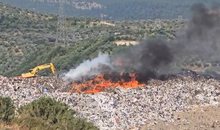
Albania's Waste Crisis: Toxic Smoke and Deep Governance Problems
2025-07-08 21:13:07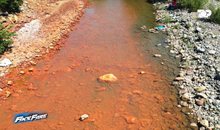
Alarming pollution in Fushë-Arrëz, copper factory waste turns the Fan River red
2025-07-08 21:07:14

Poll/ How do you assess the Prime Minister's intervention in local government?
2025-07-08 20:40:01
28 arrested in Italy and Spain for drug trafficking, including an Albanian
2025-07-08 20:24:14
Residents clash with police in Theth: We are on our land
2025-07-08 20:11:41
Death of 27-year-old in Lipjan, Osmani: To be investigated independently!
2025-07-08 20:06:52
Trump promises US will send more weapons to Ukraine
2025-07-08 19:54:25

EU targets health, education, police and cadastre as areas of corruption
2025-07-08 19:23:34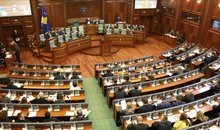


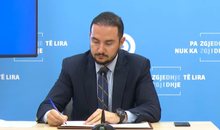

Salianji after his return: I did not oppose for functions, but for vocation
2025-07-08 18:23:15
Will he run in the 2029 elections? Here's how Salianji answers
2025-07-08 18:16:09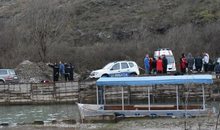
Boat captain drowns after diving into water to save two tourists in Shkodra
2025-07-08 18:05:12
Salianji from the DP headquarters: I brought a drug trafficker to justice
2025-07-08 18:03:26
After Fier, Rama "landes" in Durrës, dismissals expected
2025-07-08 17:53:32
Ervin Salianji arrives at the blue headquarters, welcomed by supporters
2025-07-08 17:45:12
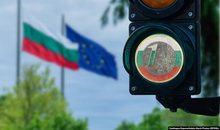
EU approves final steps for Bulgaria's Eurozone membership
2025-07-08 17:43:06

Zhupa after Salianj's release: Inspiration for every opposition member
2025-07-08 17:19:39
Actor David Killick passes away
2025-07-08 17:09:23



Threatened with dismissals, Rama arrives at the Fier municipality
2025-07-08 16:39:19
Extreme temperatures temporarily close Acropolis in Greece
2025-07-08 16:30:34

A plot of cannabis is discovered in Mazha, Kruja
2025-07-08 16:13:48

Republika Srpska allocates additional 22 million euros for lobbying in the US
2025-07-08 15:52:04

Spices that protect you from mosquitoes!
2025-07-08 15:30:03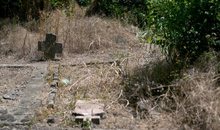

Accident on the Vlora-Qeparo axis, one injured
2025-07-08 15:11:52
Berat, 17 years part of UNESCO's world heritage
2025-07-08 15:03:30
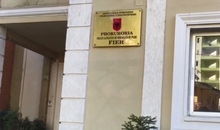

Cost of living increases, inflation rises to 2.4% in June, driven by food
2025-07-08 14:29:54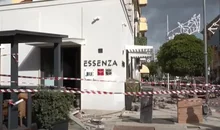
VIDEO/ Restaurant roof collapses in Italy, one victim and ten injured
2025-07-08 14:18:44
Requested release from cell, Supreme Court leaves Veliaj in prison
2025-07-08 14:07:41
TikTok shutdown/ Austrian media: Rama benefited politically from the app ban
2025-07-08 13:48:25
Acropolis temporarily closed due to heat
2025-07-08 13:31:09



Salianj's release/Berisha: He was politically condemned by Rama and Xhafa!
2025-07-08 13:00:13

Knife attack on Peshkopia Boulevard
2025-07-08 12:44:10


Fier Court decides on the conditional release of Ervin Salianj
2025-07-08 12:15:23
Cost of living increases, inflation rises to 2.4% in June due to food
2025-07-08 12:00:16

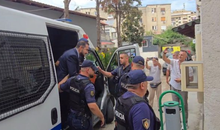
Requesting conditional release, Ervin Salianji arrives at the Fier Court
2025-07-08 11:16:36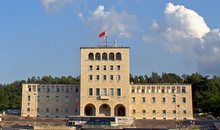
The first phase of university applications begins today
2025-07-08 11:10:52
Fire in Lura, flames endanger the National Park
2025-07-08 10:53:43
Trump warns of 35% tariffs on Serbia and 30% on Bosnia and Herzegovina
2025-07-08 10:37:32
Thethi rooster and the dung cock
2025-07-08 10:24:01

Fire in Dukat endangers Llogara National Park
2025-07-08 10:01:39
International drug search: 36-year-old arrested in Durrës (NAME)
2025-07-08 09:50:48
Thethi, tourists "criticize" modern trend
2025-07-08 09:39:54
Fire on Mount Dukat still active, Llogara National Park at risk
2025-07-08 09:28:12
Veliaj's appeal to be heard today in the High Court
2025-07-08 09:16:02
"Bad sign for democracy"/ Parliament neglects reporting by institutions
2025-07-08 09:04:56
Today's hearing at the Fier Court, Salianji requests conditional release
2025-07-08 08:56:39
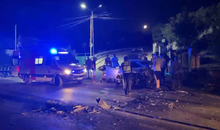

Horoscope, what do the stars have in store for you today?
2025-07-08 08:16:19
Weather forecast/ How temperatures will vary throughout the day
2025-07-08 08:02:37
Morning Post/ In 2 lines: What mattered yesterday in Albania
2025-07-08 07:48:30





Marrëdhënia që s’është romancë, por s’është as thjesht kolegiale
2025-07-07 21:39:13
Citizen is asked to pay 2.5 million for a non-existent meter
2025-07-07 21:28:03




What is the ideal air conditioner temperature in summer?
2025-07-07 20:53:46
GJKKO left him in prison, Meta appeals the decision
2025-07-07 20:38:05
Where is Ronaldo after missing Diogo Jota's funeral?
2025-07-07 20:38:04

Messages from the author who killed Ilaria Sulla in Rome are revealed
2025-07-07 20:20:12
